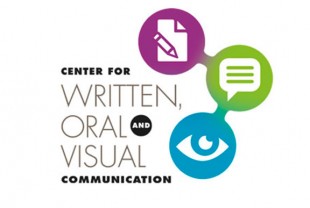BY LYNN GOSNELL
Special to Rice News
How do you reimagine writing instruction at one of the country’s top universities? A few years ago, Rice faculty began asking how they could improve an outmoded and scattered approach to teaching writing. The result? A growing, evolving and innovative communications program that reaches students at every stage of their scholarly growth — and helps prepare them for what comes after they graduate.
 What would our dream writing and communications center look like at Rice? How can we make writing instruction more rigorous, relevant and participatory? How can we support our international students in communicating their research? How can we help upper-level students improve their communication skills?
What would our dream writing and communications center look like at Rice? How can we make writing instruction more rigorous, relevant and participatory? How can we support our international students in communicating their research? How can we help upper-level students improve their communication skills?
These are some of the questions taken up by Rice faculty in 2010, when several faculty “working groups” began to re-evaluate the role of writing instruction across campus. Consultants were hired to evaluate how we taught writing and how we gauged what students were learning. Eventually, a vision emerged to create an ambitious, wide-reaching and highly accessible writing and communication center. This meant moving writing instruction out of a remedial mindset. Didn’t pass the composition test? Off you go to writing class. Passed? You’re good to go. Instead, writing was reimagined as a core practice, one that students would encounter in some format on every step of their academic journey.
What the working groups and consultants all agreed on was that “there was just not enough attention to writing at Rice,” said Helena Michie, the Agnes Cullen Arnold Professor in Humanities and chair of the faculty advisory board for the Program in Writing and Communication.
In 2012 Rice launched the Program in Writing and Communication, a resource for students and faculty. Tracy Volz, a professor in the practice of professional communication, was hired to direct the center. With years of experience teaching Rice’s engineering students to be better communicators, Volz is passionate in her advocacy for stronger writing pedagogy. “Not only do students need to have superior communication skills for academic performance,” said Volz, “but they need to be prepared to communicate with the various audiences they will encounter when they leave Rice for internships, jobs or graduate school.”
The program is set up to help students communicate more effectively, whether the task is for a class, a research competition or a job interview. Brian Spector ’88, an English and economics alum who recruits new graduates for jobs at BP, worries when he sees Rice students come to a job interview less than prepared.
“From my perspective, everything is about communication,” said Spector. “It’s about speaking clearly, being engaging, writing concisely and writing in a way that gets people interested.” Even “good writers,” said Spector, should want to get better, a lesson he learned as an English major in Dennis Huston’s classes. “He told me I was a good writer, but I could get better.”
Currently, the Program in Writing and Communication comprises four programs whose missions often overlap: the Center for Written, Oral and Visual Communication; an English as a Second Language instruction program; the First-year Writing-intensive Seminars; and a pilot program called Communication in the Disciplines.
Campus communication centers are key allies in the mission of higher education, said Chris Anson, University Distinguished Professor and director of the Campus Writing and Speaking Program at North Carolina State University. Anson worked as an external reviewer and consultant for Rice’s communications programs in the past.
“I like to think that writing and communication stand at the very center of all learning in all disciplines,” Anson said. “Everything else radiates out from that center, like the spokes of knowledge. Writing and speaking are not one of those spokes — they’re the hub.”
Read more about how the Program in Writing and Communication is helping faculty and students all across campus become better communicators in the spring 2015 issue of Rice Magazine at http://tinyurl.com/oeoqgbb.

